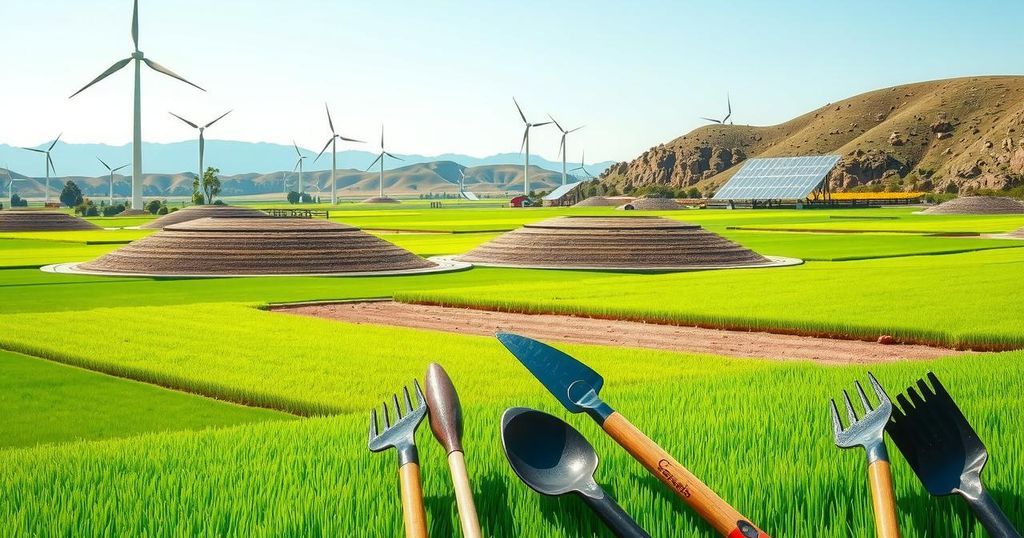Peruvian Farmer Sues German Energy Giant Over Climate Risk

A landmark lawsuit initiated by Peruvian farmer Saul Luciano Lliuya against German energy giant RWE seeks accountability for climate-induced risks to his home from an overflowing lake caused by glacier melt. This case represents a decade-long pursuit for Lliuya and could serve as a precedent for similar claims worldwide. RWE denies responsibility, arguing climate change is a collective issue. The case is ongoing in Hamm, Germany, and may influence future climate litigation.
On Monday, a significant climate lawsuit commenced in a German court as Peruvian farmer Saul Luciano Lliuya challenges the German energy company RWE. Lliuya’s home in Huaraz is at risk from the overflowing Palcacocha lake, which currently holds an excessive amount of meltwater due to glacier loss. Located in the Peruvian Andes, Huaraz is home to approximately 50,000 individuals who could be affected should the lake spill over.
Lliuya’s legal strategy employs a property law aimed at RWE, one of Western Europe’s major greenhouse gas emitters due to its coal-powered plants. Supported by the nonprofit Germanwatch, Lliuya determined that RWE is responsible for 0.47% of all human-induced carbon emissions since its establishment in 1898. Consequently, he seeks about $18,000, representing this share of the projected costs to build a protective dyke.
This lawsuit embodies a decade-long struggle for Lliuya and is one of nearly 50 similar climate-related cases being pursued globally. Although the ruling may not extend to other jurisdictions, it could serve as a compelling legal framework for nations like the United States that have analogous property laws.
RWE disputes any legal accountability, contending climate change is a collective challenge with numerous contributors. The company asserts that if held liable, it may lead to lawsuits against ordinary citizens based on their carbon footprints and emphasizes that governance should address the climate crisis rather than the judiciary.
The imminent risk posed by Palcacocha is palpable in Huaraz, a region historically scarred by a 1970 earthquake that resulted in a catastrophic landslide. Climate change has led to various detrimental effects, including loss of water sources and the emergence of toxic streams due to melting glaciers. Changes in seasonal patterns also complicate agricultural practices.
Lliuya expressed the pervasive anxiety surrounding climate change, stating, “It is scary, the risk from climate change. For example, it has been raining. Even the rivers that pass through the city have risen.” Francesca Mascha Klein, a lawyer from Germanwatch, emphasized the need for accountability, asserting that “no one should live in fear of losing their home due to the climate crisis.”
The trial is taking place in Hamm, Germany, near RWE’s headquarters, and is projected to last for several weeks, marking a crucial moment in climate litigation.
In conclusion, Saul Luciano Lliuya’s lawsuit against RWE represents a pivotal moment in climate accountability, marrying environmental urgency with legal recourse. His endeavor highlights the direct impact of climate change on communities and the critical need for corporations to face implications of their greenhouse gas emissions. The outcome of this case may inspire further actions across jurisdictions, reinforcing the dialogue around corporate responsibility in the face of climate change.
Original Source: www.gpb.org






